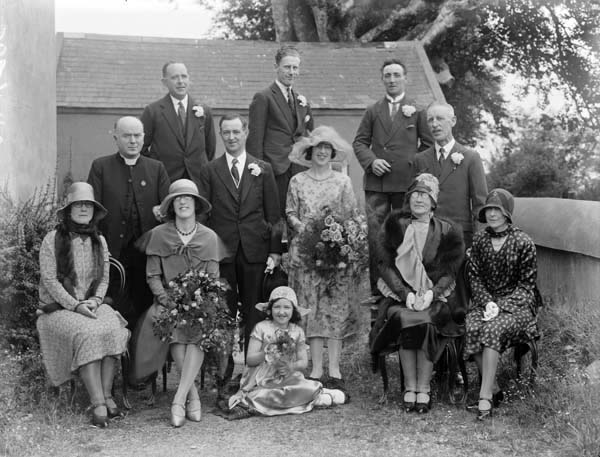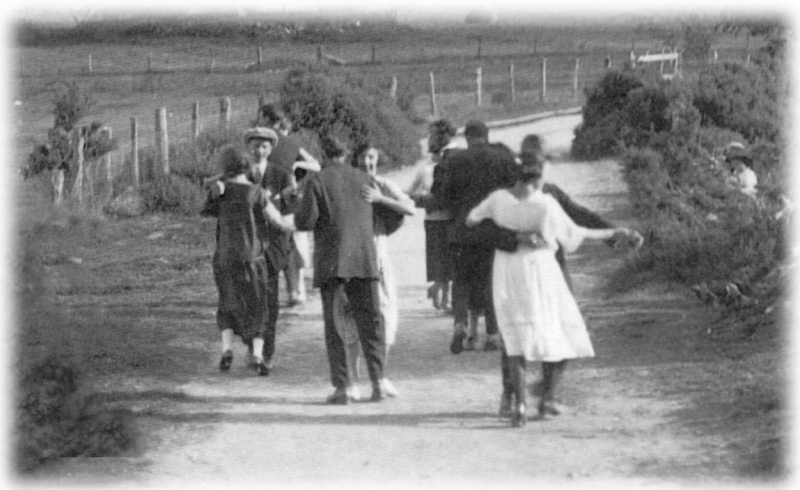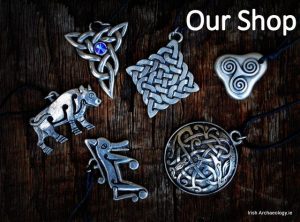
This folklore account details some of the beliefs surrounding marriage in early 20th century Ireland. It is based on information supplied by Pat Mulhern, a 68 year old man, who lived in Lisahully, Ballyshannon, Co. Donegal in 1938.
‘In some parts of the country, it is customary for the people to get married on Monday as according to the old rhyme “Monday for health. There are old sayings about each day such as. “Monday for health” Tuesday for wealth “Wednesday the best day of all “Thursday for crosses” Friday for losses and “Saturday no day at all.” These old sayings were well remembered in the days of our grandmothers and they are still rhymed off by young and old. In former times marriages seldom took place except during the week proceeding Advent and Lent Shrove Tuesday was a useful day for the big event.
Girls of marriageable age who were not lucky enough to get husbands before Lent were often subjected to mockery and told that they would be salted so that they might be preserved for the seven weeks of Lent. It was said that May and July were unlucky months. Again it was said and is said still that Friday and Saturday are unlucky days on which to embark on marriage.
Matchmaking is still quite common in country districts. The friends of the boy or girl who are anxious to get settled select a partner whom they consider suitable for the person in question.
Word is sent to the lady of her parents and if they consider the proposal to be suitable a meeting is arranged between the parents of the parties. A dowry is the one big question of importance and after a long discussion the point is settled and the pair are brought together. A suitable day for the wedding must be agreed on and so the preparations begin.
It was usual for the friends of the bride to assemble in her house and to go in the side –cars to the Chapel where they met the groom and his friends. After the marriage a drive of perhaps fifteen or twenty miles then took place. On the way home the cars raced each other and this was part of the fun.

In the brides’ house a great feast was prepared. At night a dance took place and dancing and singing continued to the early hours of the morning. This custom is rapidly dying but Nowadays marriages take place in the morning after which the bride, bridegroom, and friends partake of their breakfast in a hotel. Afterwards the happy couple go away to spend their honey moon in some big city’.
These ‘Marriage Customs’ form part of the Schools’ Folklore Collection, a large and important corpus of material, whose compilation occurred between 1937 and 1939. This far-sighted scheme, run by the Irish Folklore Commission, saw over 100,000 schoolchildren collecting local folklore from their parents, grandparents and older members of the community.
Notes


